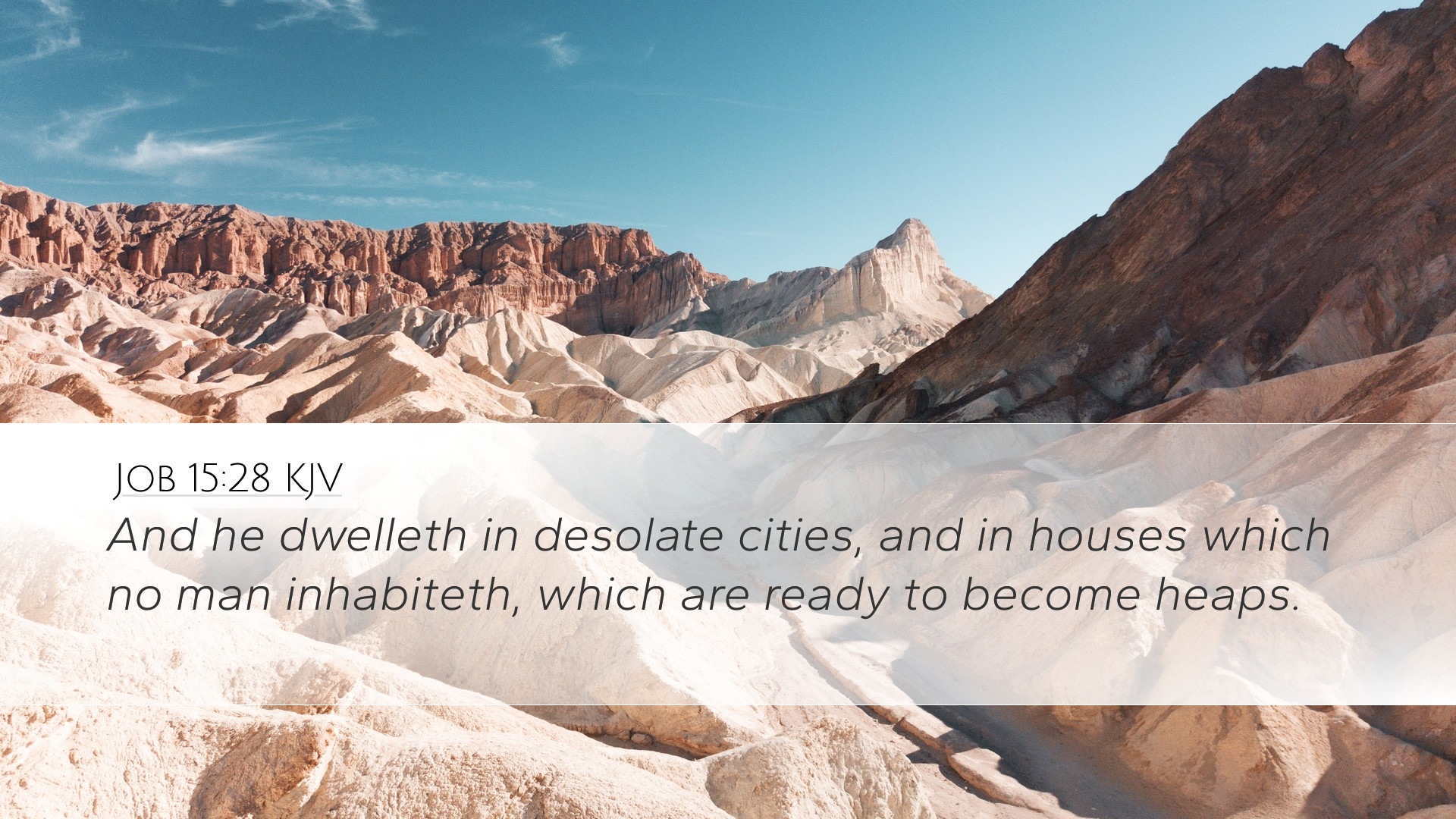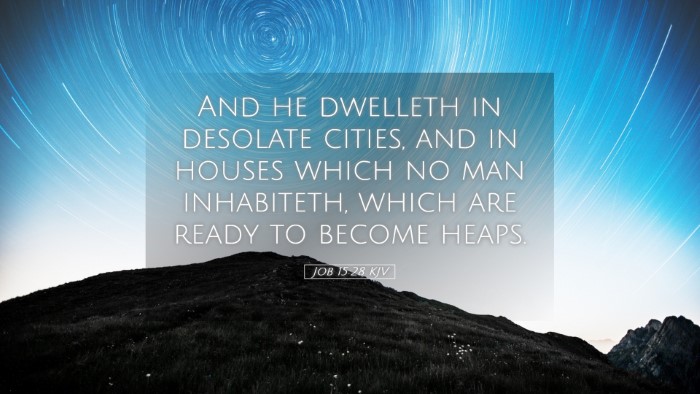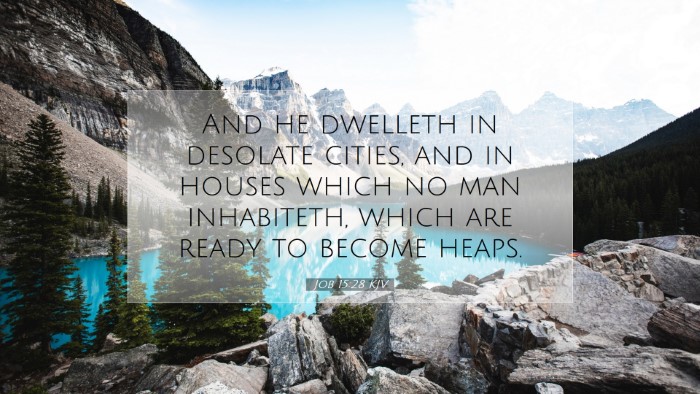Commentary on Job 15:28
Job 15:28 reads: "And he dwelleth in desolate cities, and in houses which no man inhabiteth, which are ready to become heaps." This verse is part of Eliphaz's speech, revealing themes of judgment, the transient nature of wealth, and the fate of the ungodly. Below is a summary of insights gathered from various public domain commentaries.
Contextual Background
In the broader narrative of the Book of Job, this verse is a part of Eliphaz the Temanite's response to Job's suffering and lamentations. Eliphaz, representing one of the three friends, emphasizes the fickle nature of human prosperity and the certainty of divine judgment against the wicked.
Summary of Insights
-
Matthew Henry:
Henry notes that Eliphaz highlights the outcomes of the wicked as a warning to Job. The desolate cities and empty houses metaphorically represent the emptiness of a life lived apart from God. Those who reject divine wisdom often find themselves in isolation and ruin, which serves as a divine reminder of the consequences of sin.
-
Albert Barnes:
Barnes expounds on the imagery of desolation. He argues that this indicates the judgment that awaits the godless and wicked. In his commentary, he articulates the idea that the prosperity of the wicked is tenuous. They may appear to thrive, but ultimately they dwell in places that epitomize abandonment and loss.
-
Adam Clarke:
Clarke succinctly connects this verse with the fate of both individuals and nations. He points out that houses "ready to become heaps" signify more than individual ruin; they embody the decay of civilization itself when divine favor is absent. Clarke emphasizes that the blessings of God are vital for true prosperity, implying that without spiritual integrity, what remains is dust and desolation.
Theological Implications
This verse carries significant theological weight as it engages in discussions of divine justice, human agency, and cosmic order. It reflects on the justice of God where the righteous are rewarded, and the wicked face inevitable consequences. The imagery presented serves to solemnly remind believers of the importance of faithfulness and reliance on God.
The Rhetorical Function of the Verse
Eliphaz's rhetoric serves a dual purpose: to comfort the righteous by affirming that the wicked will face destruction and to challenge Job’s understanding of his suffering. The desolation of cities is not merely physical but also spiritual—a metaphor for the soul deprived of God’s grace. Pastors and theologians can utilize these insights to communicate the realities of sin and divine justice effectively.
Application for Modern Believers
The contemporary application of this verse encourages self-examination regarding one's standing before God. The question arises: Are we prioritizing our relationship with God, or are we leaning on worldly success? The desolate cities symbolize what happens when we forsake divine wisdom—an essential tutorial for modern believers to assess their paths.
Encouragement or Warning?
This passage can serve as both encouragement and warning. For those enduring hardship yet remaining faithful, there is reassurance that God honors faithfulness. For those drawn to wickedness, it stands as a dire warning of the inevitable fallout of forsaking divine principles. Thus, it serves as a holistic reminder of God’s sovereign rule over history and individual destinies.
Conclusion
In summation, Job 15:28 encapsulates vital truths found throughout the scriptural narrative, emphasizing God's judgment, the fate of the ungodly, and the vacuity that accompanies a life devoid of divine guidance. These themes are timeless, inviting pastors, students, and scholars alike to explore their implications in both personal and communal contexts.


